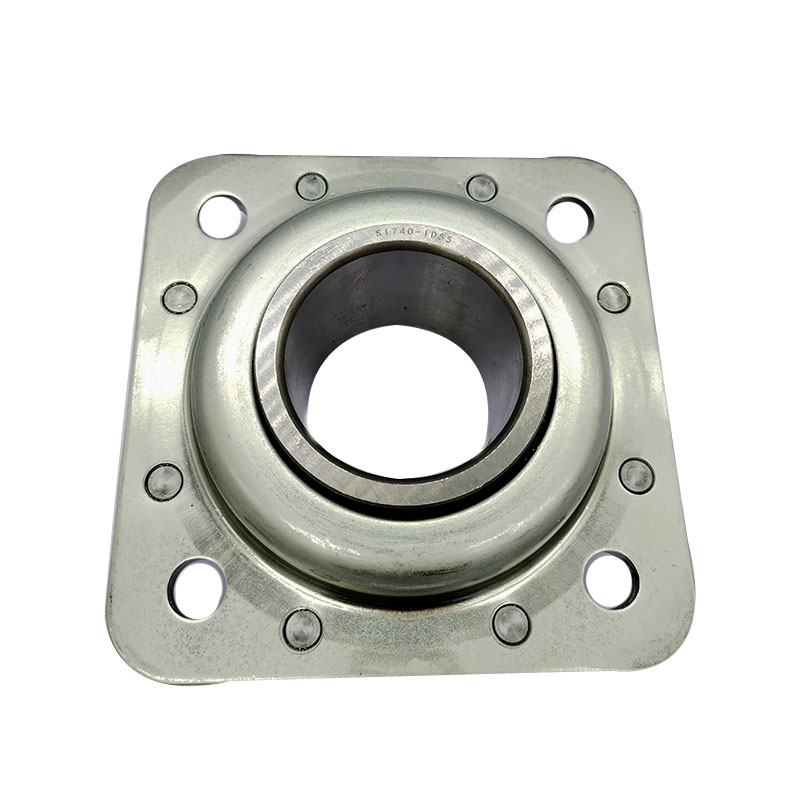Dec . 02, 2024 00:56 Back to list
Wholesale Ceramic Bearings for Enhanced Performance and Durability in Various Applications
Exploring Wholesale Ceramic Bearings An In-Depth Look at Efficiency and Reliability
In today’s fast-paced industrial environment, the demand for high-performance components has led to a growing interest in advanced materials such as ceramic. Among these components, ceramic bearings have emerged as a key player, offering superior durability, reduced friction, and enhanced performance under various operating conditions. This article delves into the benefits, applications, and considerations associated with wholesale ceramic bearings.
Understanding Ceramic Bearings
Ceramic bearings are mechanical components that utilize ceramic materials for the rolling elements and, in some cases, the races. The primary materials used in these bearings include silicon nitride (Si3N4) and zirconium dioxide (ZrO2). Unlike traditional steel bearings, ceramic bearings are known for their exceptional hardness and ability to withstand high temperatures without compromising performance.
Advantages of Ceramic Bearings
1. Reduced Friction and Wear One of the most significant benefits of ceramic bearings is their low coefficient of friction. This property translates to reduced wear over time and overall improved efficiency of machinery. The lower friction results in less heat generation, which is particularly advantageous in high-speed applications.
2. Corrosion Resistance Ceramic materials often exhibit excellent resistance to corrosive substances and environments. This resilience makes ceramic bearings ideal for applications in industries such as pharmaceuticals, food processing, and marine environments, where exposure to moisture and chemicals is a concern.
3. Lightweight Ceramic bearings are significantly lighter than their steel counterparts, which can contribute to reduced overall equipment weight and improved energy efficiency, especially in aerospace applications where every gram counts.
4. High Temperature Tolerance Withstanding higher temperatures without degrading is another crucial advantage of ceramic bearings. They maintain their structural integrity at temperatures that would typically compromise steel bearings, making them suitable for extreme operating conditions.
5. Electrical Insulation Ceramic materials are non-conductive, making ceramic bearings ideal for use in electric motors and other applications where electrical insulation is necessary to prevent short circuits.
Applications of Ceramic Bearings
wholesale 6805 ceramic bearing

The versatility of ceramic bearings has led to their adoption in a wide range of industries
- Automotive High-performance vehicles often utilize ceramic bearings in transmission systems and wheel hubs to enhance efficiency and durability. - Aerospace The aviation industry demands lightweight and high-performance components, making ceramic bearings a preferred option in various applications, including engines and landing gear. - Medical Devices In the medical sector, where precision and reliability are critical, ceramic bearings are used in devices such as robotic surgical tools and diagnostic machinery due to their biocompatibility and corrosion resistance. - Industrial Machinery Many manufacturing technologies, including CNC machines and conveyor systems, benefit from the durability and performance of ceramic bearings, which can help extend maintenance intervals and reduce downtime.
Considerations for Wholesale Purchasing
When considering wholesale ceramic bearings, several factors should guide your decision-making process
1. Quality Assurance Ensure that you're sourcing bearings from reputable manufacturers known for maintaining high-quality standards. Look for certifications and standards that speak to the reliability and performance of the products.
2. Material Specifications Different applications may require specific types of ceramic materials. Understand the properties of the ceramics used and how they align with your operational needs.
3. Cost vs. Performance While ceramic bearings generally come with a higher upfront cost compared to traditional bearings, the long-term benefits in terms of reduced maintenance and improved efficiency can result in significant savings over time.
4. Supplier Relationships Building strong relationships with reliable suppliers can facilitate better pricing, consistent availability, and valuable support regarding technical specifications and applications.
Conclusion
Wholesale ceramic bearings represent a high-performance alternative to traditional bearings, offering unmatched advantages in terms of efficiency, durability, and reliability. As industries continue to seek improved solutions to enhance productivity and reduce operational costs, the role of ceramic bearings will undoubtedly become more prominent. By understanding the benefits, applications, and critical considerations involved in sourcing these components, businesses can make informed decisions that support their operational goals and drive success. In a world where precision and performance are paramount, investing in ceramic bearings is a strategic move towards achieving excellence.
Latest news
-
25MM 2 BOLT UCFLX05-14 Flange bearing unit( oval)
NewsMar.07,2025
-
4 bolt UCF 200 series Pillow block bearings
NewsMar.07,2025
-
25MM 2 BOLT UCFLX05-14 Flange bearing unit( oval)
NewsMar.07,2025
-
UCF216-50 4-Bolt Flange Housing Square Bearing
NewsMar.07,2025
-
25MM 2 BOLT UCFLX05-14 Flange bearing unit( oval)
NewsMar.07,2025
-
spherical roller bearing material exporter
NewsMar.07,2025





